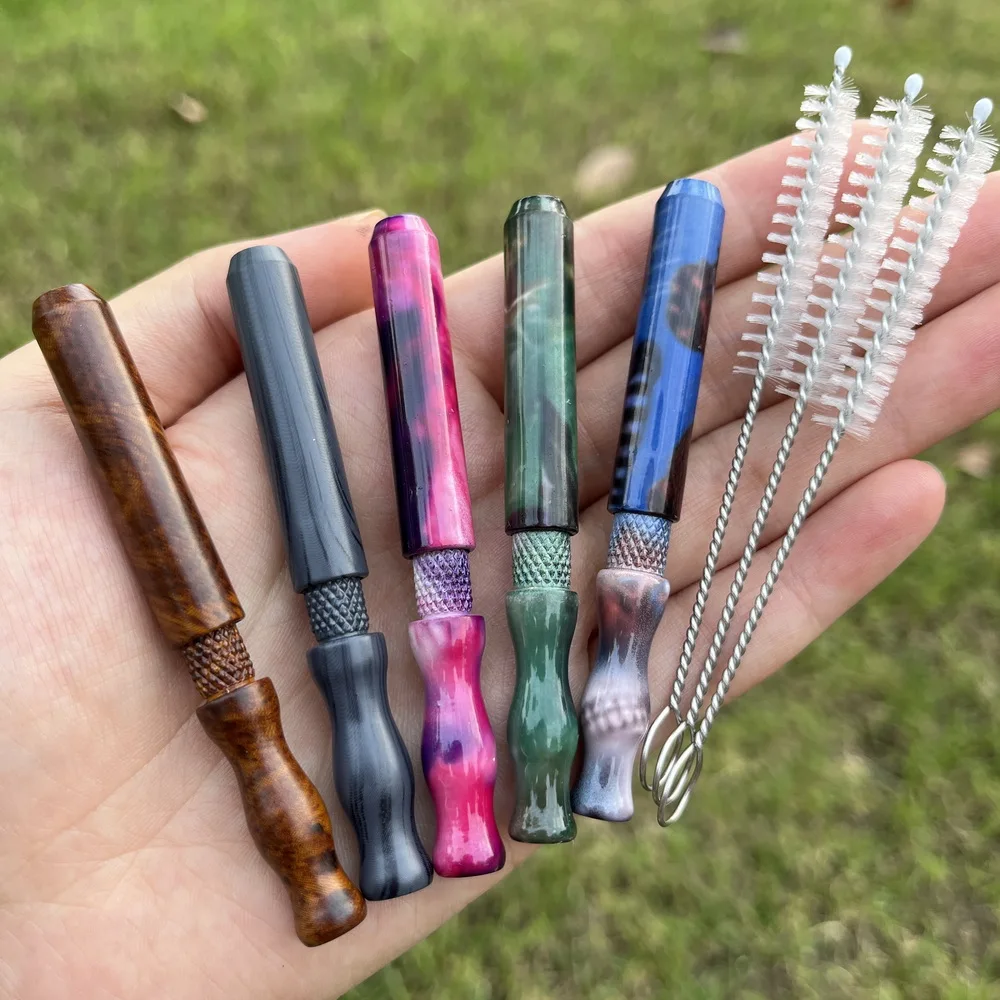Given Larry Charles’ career, a memoir titled “Comedy Genius” wouldn’t have been too self-aggrandizing or off the mark. Charles was a writer on Seinfeld, directed Borat and Bruno, produced and directed classic episodes of Curb Your Enthusiasm, and, most recently, helmed Dicks: The Musical. For decades, he’s made audiences laugh until it hurts.
He broke through the mainstream time and time again, mostly by breaking the rules — often showing people at their worst, especially in the case of Borat and Bruno. He’s found laughs in some of the darkest parts of the world, as in his series Larry Charles’ Dangerous World of Comedy. The man travels far for laughs.
Given his raucous Sullivan’s Travels journey, the title of his memoir — Comedy Samurai: Forty Years of Blood, Guts, and Laughter — couldn’t be more apt. Comedy genius? Yes, maybe so. But first and foremost, a Comedy Samurai. The director wanders into towns and finds comedy, even when the laughs aren’t apparent or easy. He fights for his life at times to get laughs, accepting rather than running from danger.

Often, the comedy is in chaos.
Out of the chaos, with more and more bizarre life and professional experiences to share, Charles is left only with more questions than answers. He wrote a memoir full of pathos, sex, drugs, and comedy, with closure — but no real ending in sight to the questions that define his comedy and life.
Recently, Charles spoke with High Times Magazine about his journeys in the world of comedy, his lessons from working with Bob Dylan, and why he can’t complain.
Let’s begin with the end: there’s no tidy bow here. You’re left with questions, fewer answers. When you finished the book, did you still just feel like you’re searching?
It’s very Seinfeldian in that respect, although I hadn’t thought of it that way until you said it. But no hugging, no learning. There’s no false morality at the end of the book. Well, here’s what I learned, and if you just apply these lessons, you’ll be okay. No, life doesn’t work that way.
To me, in the best comedies, the characters actually don’t learn anything at the end. If you think about Inspector Clouseau or Borat or any great comedy character, they really end where they began, to some degree. That’s kind of like me as well.
Were there any epiphanies along the way of writing about your life, though?
Well, I’ve been a questioner most of my life. It’s gotten me into a lot of trouble, but it’s also kept the dialogue in my head going the whole time. I’ve always questioned my epiphanies. I’ve never felt, oh yeah, man, I got to figure it out finally. No, I’d never have had that feeling — maybe for a moment — and then something would snap me out of it very harshly.
When you’re left without answers, do you wish you had them, or do you prefer to see the joy and comedy in that part of life?
I’ve wished there were answers since I was a kid. I wish things were more rote and pat. I wish you could go, yeah, this is what you have to do. There are a lot of people like that. Social media is filled with people — so-called experts — telling you exactly what to do, how much exercise, what to eat, how to think.
I find those answers very short-lived. They don’t have much substance to them. Life is more complicated, especially if you engage in life. If you are someone who doesn’t really engage — if you’re more removed from reality, if you don’t have significant others or kids, or complications in your job, or complications in your life in any way — then you can make some maybe possibly simpler conclusions. But if you are engaged in life, it’s not so simple. It’s not black and white. That’s something I think I am not happy about, but I think it’s reality.
The code of the comedy samurai — what does it really mean to you today?
Going from town to town for projects, often in trouble. When I watch samurai movies, that’s usually the plot. There’s a town in trouble, and the samurai is sent into that town to fix that town.
The samurai, however he’s represented, or the gunfighter, can come into that town with a lot of difficulty, but ultimately triumph can fix that town. But he doesn’t stay around to get credit or to enjoy it. His job is to move on to the next town. And so, I saw myself in that kind of light as a Comedy Samurai.
A samurai – one of the most important aspects is serving the master. I’ve had the good luck, as I talk about in the book, of serving some of the highest ascended comedy masters that we’ve had — between Larry David and Jerry Seinfeld and Sacha Baron Cohen and Bob Dylan. I’ve had insightful, unique masters to whom I’ve been able to devote myself.
Even when those comedy masters aren’t as loyal to you, you still see the bright side of those relationships in the book.
I do. I wouldn’t have had that perspective necessarily 20 years ago. I’ve lived life long enough to have the perspective of being grateful for my encounters with these people, even if they didn’t turn out perfectly in the end. Everything is imperfect, and I am acknowledging that, including myself, and so it doesn’t take away from what they have accomplished or what they did for me.
It’s always funny reading a memoir of someone admitting they’re a private person. So, as someone who keeps his life to himself, what’s the challenge of laying it all out on the page?
That was the hardest part of writing the book. Initially, I was like, well, I have all these incredible experiences. I could share that. But as I started to write it, I didn’t want it to be a showbiz memoir, even though it is on a certain level. I wanted it to have more than one level. I like density in the things that I read, watch, and listen to.
For me to talk honestly about these experiences, including sometimes negative thoughts about some of the people that I’ve worked with, I needed to be honest about myself as well. That was hard to write.

As much success as you’ve had as a director, the book is largely about struggling with personal and professional failures.
I’ve come to believe, and I’ve come to learn, that failure is an important part of the equation of success. There is no way around it. Everybody that I worked with has had massive, profound, often public failure. No one has failed more than Bob Dylan, but here he is. He’s still around. He’s probably more popular today, weirdly enough, than he’s ever been, and yet he’s had so many failures.
Look at the movie you two made, Masked and Anonymous. That movie literally lives in its own world. Failure or success — how do you even define such a movie, right?
It’s true. Of course, it wasn’t a box-office success, but we never thought that it would be. It was made for $4 million, which is almost ridiculous when you think of all the stars and the making of it. That was the triumph of that movie.
People at the time jumped on it and eviscerated it. It reminded me of some of the travails that Bob has been through with certain albums — his born-again Christian phase. People have been nasty to him, and Larry David has had many failures as well, and stumbled into Seinfeld and became successful. I mean, he begged along the way, before it became successful, for it to be canceled. He wanted to be done with it.
So, it’s something that I see. There’s a certain resilience in people — and in myself — who bounce back from failure and learn from failure. They can carry failure with a certain honor that informs their success.
With the Bob Dylan chapters in your book, it’s clear you felt a kinship to him. How’d you two connect?
He was somebody that I kept my mind really open around, because he had done it. He had done a lot of the things that I sort of aspire to, and he understood things on a certain profound level that sometimes were hard for me to understand.
But he had lived by his code and stuck with it and didn’t question it. He trusted his instincts and let them take them wherever they would. He was not afraid of that journey. If he felt like doing something that nobody agreed with, it didn’t matter. He would do it anyway and accept the consequences.
It didn’t really matter if those consequences were negative or positive. For him, it was the doing of it. This is what his mind, what his soul, were dictating to him to follow.
You also write about your early days of working with Larry David on the live comedy show Fridays. There’s so much anxiety and uncertainty in those early chapters. Looking back, how much do you think those fears were spurred on by the drugs?
At the time, I thought drugs were a way to placate those fears. For me, I think for everybody, there was an incredible competition. This is the nature of that kind of show, and I think it’s true also on Saturday Night Live: there is a competition, and you must succeed. If you fail, you lose your job.
Now, if I had lost my job, I would’ve figured something out, but at that time, I didn’t want to lose my job. I wanted to succeed. And so, I kept coming back over and over and over again. Even after the first couple of episodes, if I didn’t get a sketch on, I would just focus on writing a sketch that was indisputable, that would have to be put on the show, that would be a success. I kept pushing myself.
But the fear that underlies a lot of that competition was placated to a large degree by the drugs. The drugs gave you kind of a supernatural sense of a higher level than was true, but you needed that illusion. You needed to perpetuate that illusion upon yourself in order to succeed there. Eventually, the drugs stop working, and that’s when it becomes a problem.
By that time, the show was pretty much off the air. So, it sustained almost everybody who survived that show for about the run of the show. And if it had gone on longer, it probably would not have worked out. Things would’ve crashed much harder. In fact, John Belushi’s death became kind of a symbolic death for that world of cocaine and late-night sketches. It took a turn after that into a different direction, bringing people back to reality.
You’ve pushed boundaries in comedy and gone to places others won’t. When you dreamed of making movies and shows, did you always want to make rebellious work?
Well, I grew up in the mid-seventies, and punk rock came along, and imperfection came along. Spontaneity came along in art. I would go to CBGBs when I was a teenager, and for three bucks I could see the Ramones and Talking Heads and Blondie and all these bands creating new rules, breaking rules, and creating great art in the process.
I had this kind of Hollywood structure, a neat side of me, but I was getting more and more attracted to a more down-and-dirty type of filmmaking. It appealed to me, and it seemed almost pretentious to me to try to organize a slick sort of thing. I’m not that way.
How so?
I’m a mentally messier person. I’m an eclectic person. I like pouring stuff on and seeing what would happen and not knowing what the result was, and not really even caring what the result was. But having a trip along the journey itself became very important to me.
I think that’s kind of the punk rock thing, as there’s an immediacy to it, and it’s stripped away of a lot of the elements that would make it a Hollywood product. I didn’t want to make a product — even though you do, I didn’t want to make a Hollywood product.
A lot of your work is inspired by what’s happening in the world. When you pick up a newspaper, see all the bad and tragic news, what stories do you see as worth telling?
Elvis Costello had that song, “I’m Not Angry,” but he was obviously very angry. I’ve reached a point where I’m not really angry at most of the things around me — the people, the circumstances. But what I’m still tensely angry about is the world. The world makes me angry. The injustice and the suffering is what upsets me now.
And so, yes, I try to somehow, and it’s inadvertent in some ways, but I reflect that feeling as well. I think that’s an important feeling for me to have.
Does that make you want to make more comedy when things get darker?
Not necessarily. Comedy is in a weird place. It’s like, what is funny? That’s a question I’ve been asking myself since the beginning. What is funny? Why do we laugh? I’ve had the great luck of having masses of people laugh altogether as a group, but I don’t know. That seems hard to do these days. I’m not sure what that formula is. I’ve never known.
Every day is a new day, and every blank page is a new blank page. So, there are no real answers or solutions or formulas to that, even though people are constantly trying to quantify what it is, what makes something funny — they’re looking for a mathematical equation. I know it’s not that. I know it’s the unexpected.
Borat — nobody was expecting that, and that exploded because it gave people something that they needed without even knowing that they wanted it.
With [Netflix’s] Larry Charles’ Dangerous World of Comedy, you went to dangerous parts of the world to meet comedians. A negative social media reaction here to a joke is nothing compared to what many of the comics experience in that series. How’d those conversations with comedians change you?
Well, so much of what we talk about in the world of comedy is Western and American. Having that perspective of talking to Iraqi comedians and Somali comedians, it’s always there in my head when I hear these conversations about how we live in a very spoiled society. People think there are stakes, but as you’re saying, it’s like a negativity on social media. It’s not the same thing as being assassinated.
For me, I try to maintain that perspective of — you’re missing the big picture. You’re not realizing how connected you are to the world, that your joke is not just about the joke. It’s about something much bigger. The context of that joke really counts as much as the joke itself.
It’s boring to watch Netflix specials in which someone complains while getting a lot of money.
Yes. Exactly. No, I think that was a very profound experience for me. It was something I wanted to have. I wanted to go out and be like a war correspondent for comedy, and I got to learn a lot. I mean, I really got to. And I also learned that people love Seinfeld and Curb and Borat around the world. People in Iraq would come up to me and say that my friend is just like Kramer. And so, it really expanded me. I’m looking for these mind-expanding kinds of experiences, and that certainly was one of the most profound that I had.
Not only your work, but you, yourself, always had a distinct look. The long hair, the long beard, the shades at night — you’d even have security on your own sets thinking you were homeless, not the director. Was it like a uniform to you?
To some degree, a lot of disguises, a lot of masks that we wear. It started off being practical. I would travel home from CBGBs, for instance, back to Brooklyn. I would be on the D train, and it would be three o’clock in the morning, and I’d be by myself. It was a little scary.
If I put the sunglasses on, there was a good chance that a predator walking through the train — which wasn’t unusual — would walk past me, not mess with me. So, there was that.
And then, at one point, I was very poor. I was parking cars and broke my regular glasses. All I had left were my sunglasses. I started wearing them at night, even when I was parking cars and when I was a bellhop. And then, when I was finally able to grow a beard, it was a way to cover up the fear — the fear of intimacy, the fear of connection.
It gave me a little detachment, which I needed, I think, to observe. I was able to look at anything I wanted to when I wore sunglasses and had a beard.
My father was a real dandy who wore beautiful suits. I kind of rejected all of that and wore homeless clothes — shirts and sweatpants and things like that with holes in them — until, yes, I’d be mistaken for a homeless person on the set sometimes, and security would try to remove me.
And then at a certain point, I thought, I’m ready to face the world. I’m ready to take off the glasses. I’m ready to trim my beard. I’m ready to face the world, whatever that means. I’m still, as you know, still figuring that out.
Now, after the kind reception to the book and all the self-exploration involved, how are you feeling about at least trying to figure it all out?
The thing I walk away from with all this is how lucky I’ve been, that I’ve had these experiences, that I’m still here, that I’ve survived, that I have something to tell. I have a story to tell, and that the story is meaningful to people is the greatest gratification I could possibly get out of it.
I’m happy you’re in a good place.
I am in a good place. I cannot, as we talk about with the other comedians in the West, I can’t complain. I can’t complain.
Photos courtesy of Larry Charles




























